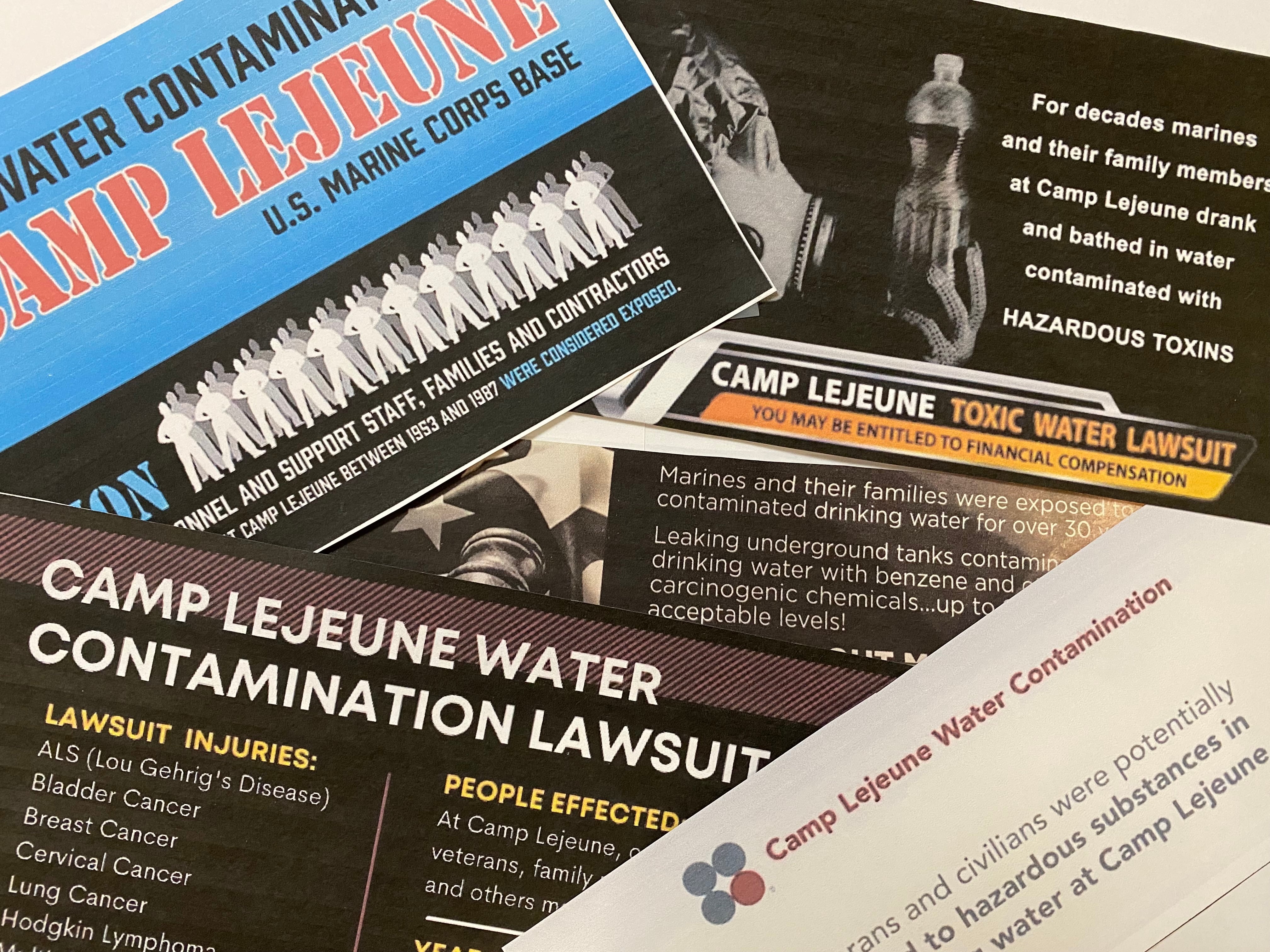Veterans Affairs processors in recent years mishandled more than one-third of all disability claims related to water contamination issues at Camp Lejeune in North Carolina, potentially cheating as many as 21,000 veterans out of financial compensation, a government watchdog said Thursday.
A new report from the department’s inspector general said errors in claim effective dates and retroactive payments alone affected nearly 4,000 veterans and totaled about $14 million, but that accounts for only a small portion of the mistakes.
The majority of the mistakes — affecting more than 17,000 veterans’ cases — came because staff prematurely denied claims without requesting additional evidence of injury and exposure to the contaminated water.
“Veterans were not informed of the specific evidence needed to support the claim before the decision … Some of the veterans’ claims might have been granted if veterans had been notified of evidence needed to decide their claims,” the report stated.
RELATED

The findings come about two weeks after President Joe Biden signed into law legislation allowing individuals to sue the federal government for civil damages related to injuries related to the Camp Lejeune, North Carolina, water contamination.
From 1953 to 1987, troops and civilians at the base were exposed to drinking water contaminated with a host of toxic compounds related to on-base industrial activities. Outside advocates have said more than one million individuals may have been affected.
In 2017, VA officials established eight presumptive conditions believed linked to the water, including adult leukemia and kidney cancer. Individuals with those illnesses can be granted regular disability payouts with less documentation than is required in other cases.
But veterans who contracted illnesses other than those eight can still apply for disability benefits, if they can prove their exposure to the water contamination caused other problems.
In a review of more than 57,000 Camp Lejeune, North Carolina, cases handled by VA staff between March 2017 and March 2021, however, the VA inspector general found that many cases not related to those eight presumptive conditions were summarily rejected, instead of requesting more information on their conditions.
Investigators did not estimate how many of the cases would have resulted in disability payouts.
RELATED

The underpayment problems centered on VA failing to grant veterans the “most advantageous effective date that applies for the facts of the case,” as outlined under department policy.
In many cases, veterans could have been awarded at least one year of back pay for medical conditions that had lingered for years, even if they had not applied for benefits in the past. In others, cases that were rejected and later revised could have been backdated to the original filing time, giving veterans retroactive payments.
Staff at VA’s regional office in Louisville, Kentucky, have received special training in the Camp Lejeune cases, but in 2017 those claims were spread around to other VA offices as part of changes in the department’s workflow.
Investigators found an 8% error rate in cases handled in Kentucky, versus a 40% error rate for facilities that did not have the same Camp Lejeune-specific training.
Veterans Benefits Administration officials said they have made improvements to the process in the past year and are currently compiling data on improving accuracy in those claims. Those results are expected later this fall.
Officials also promised, in the coming months, training improvements for all offices in handling the claims.
Leo covers Congress, Veterans Affairs and the White House for Military Times. He has covered Washington, D.C. since 2004, focusing on military personnel and veterans policies. His work has earned numerous honors, including a 2009 Polk award, a 2010 National Headliner Award, the IAVA Leadership in Journalism award and the VFW News Media award.









